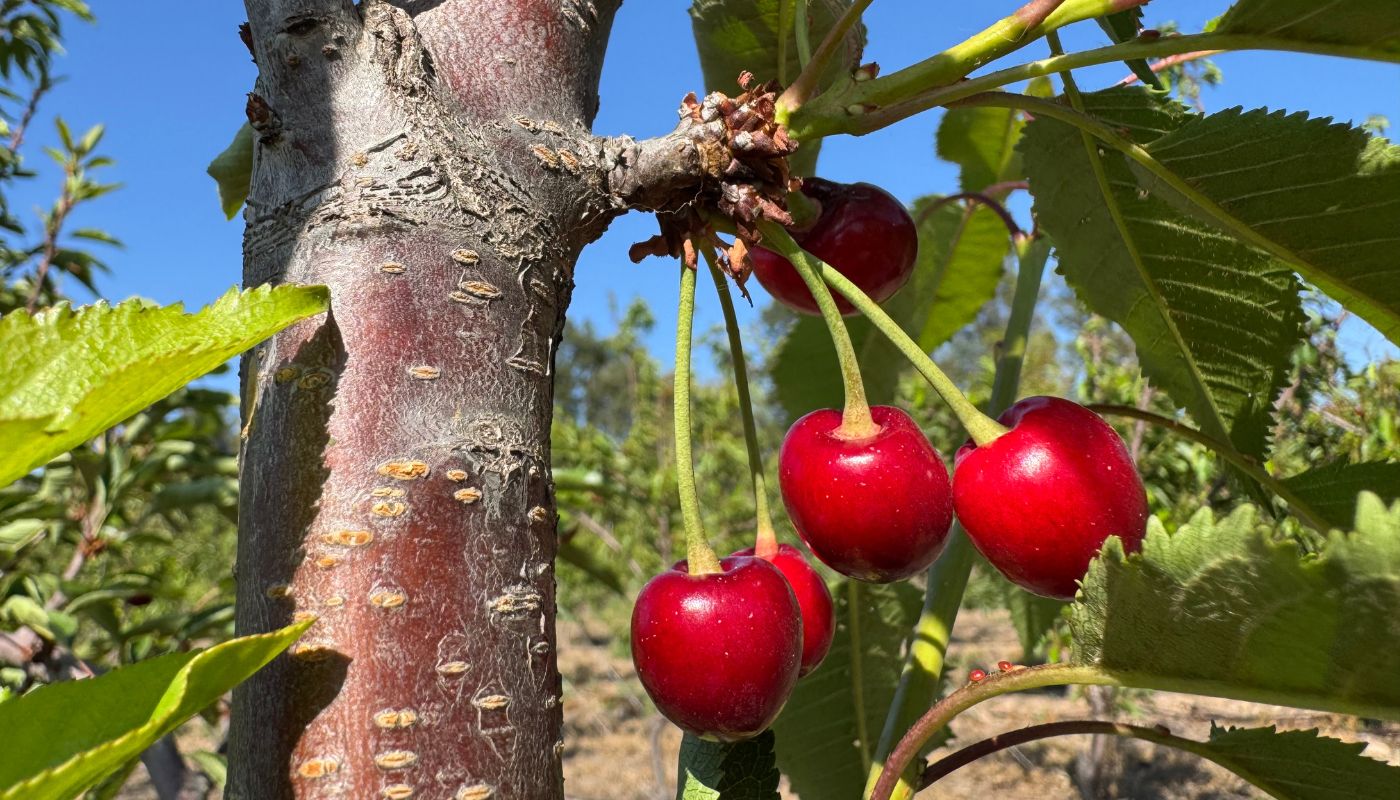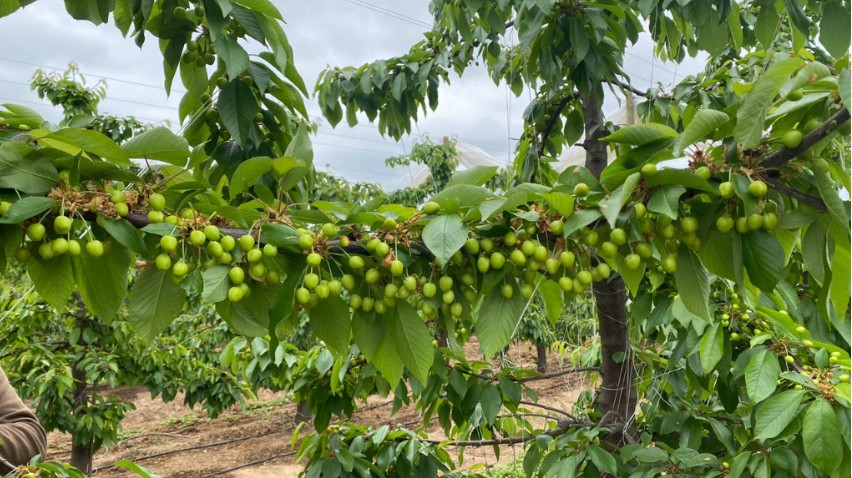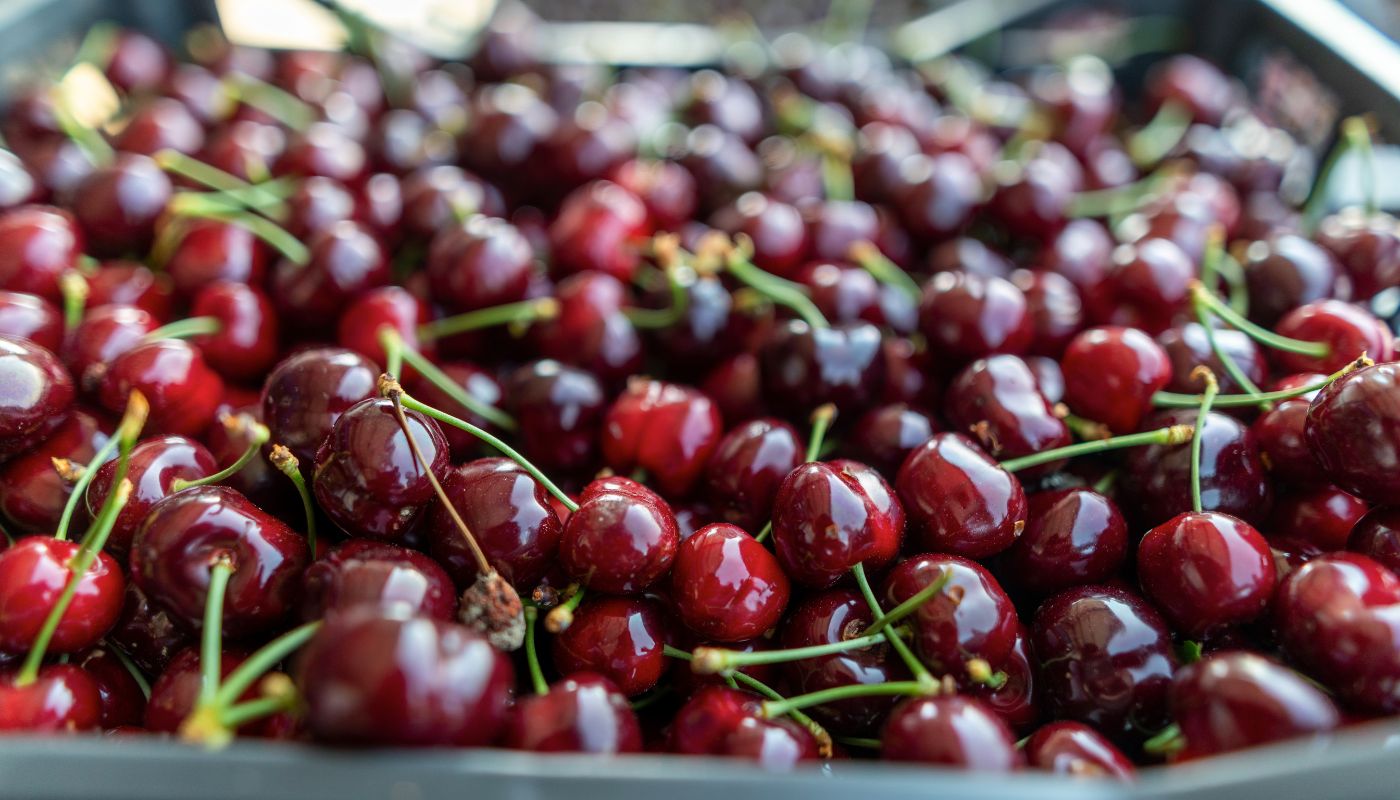Cherry producers in the Valencian Community had high expectations for this campaign, which they predicted would be excellent, after several consecutive seasons with almost no fruit due to drought or rain at inappropriate times. However, the light rains at the start of the harvest season, and especially the heavier ones in recent weeks accompanied by hail in some areas, have reduced production and left losses of more than €3 million, according to the provisional estimate by La Unió Llauradora.
In the province of Alicante alone, the harvest is estimated to be 400 tons lower than initially forecast due to the effect of the rains, and in Castellón, less than half of a more or less normal campaign. The high temperatures of the past few days have not helped and have brought forward production, so there will be a buildup of fruit in the markets just when prices were at their highest. It should be noted that cherries are a sensitive and delicate fruit, especially when exposed to rain, which cracks them and renders them unfit for sale.
Therefore, La Unió believes, “it is very important to have adequate tools to address this, which is currently lacking, as well as financial support from the authorities. The Generalitat [Valencian] has not even yet resolved aid for last year’s drought. Furthermore, the current cherry insurance has become a serious problem rather than a solution for the sector, as farmers do not see it as useful nor does it adequately protect them from their biggest weather problem, which is persistent rain and lack of fruit set”.
Given this situation, La Unió will request that rain insurance coverage be per plot rather than per farm. Another proposed change is that crop failure or poor fruit set, which is covered under “other climatic adversities,” be per variety, and that it be maintained per farm but assessed by variety.
It should be noted that for cherry orchards, with many plots per farm, located in different locations, with different altitudes, orientations, and varieties (some ripen earlier than others), current farm insurance significantly lowers the average damage rate and, according to La Unió (La Union), is not worth taking out for this risk, compounded by the rising price due to the high accident rate.
Farmers in the Valencian Community have stopped taking out insurance, and the latest data for 2024 indicate that only 118 farms insured their harvest, 22% fewer than in 2023. for a volume of 4.1 million kilos insured, 23% less than in 2023.
“If insurance is not provided and cherry farms are abandoned, the viability of the crop is at risk. In just seven years, from 2017 to 2023, the cherry cultivated area in the Valencian Community has decreased by 14% (403 hectares), falling from 2,889 to 2,486 hectares”, said La Unió.
Enric Simó, a cherry producer at La Unió, explains that “at first, the campaign was expected to be very positive, unlike in recent years. The continuous rains have delayed flowering, which normally takes place in the second half of March, and this year it has been delayed until approximately the second half of April.” And he adds: “We were already experiencing very late flowering, but once it started, there was hail, which ruined a large part of the production, and many cherries failed to set”.
The rise in cherry prices this season also doesn’t compensate most producers, because there is less fruit to achieve the desired profitability. On the positive side, and looking to the future, is the recent agreement between China and Spain for the export of cherries to the Chinese market for the first time in history.
“If Spain manages to become a reliable supplier, with differentiated and well-managed fruit, the Chinese markets can be a stable and highly valuable source of our cherries in the coming years, as long as we resolve some internal problems, such as insurance, that prevent further farm abandonment”, says La Unió.
For more information:
Carles Peris
La Unió
Tel.: +34 658 92 89 23
launio@launio.org
https://launio.org









